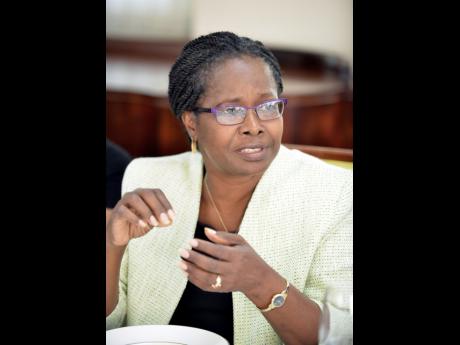Science enthusiast Joe Issa, who has often hailed NASA for discovering new deep-space objects, has said it would be thrilling if one day he could make his discoveries.
“I would like to be the first to discover a planet similar to earth that can be colonised, and leave it to the experts to determine how to get there. Perhaps I might own the right to erect the first billboard there which, of course, will be a Cool Corp sign.
“But in all seriousness, if what the Google expert said is true, this could open up a new era of interests in the deep-space search by amateurs using their computer to discover new planets.

“It may be a dream today, but it is entirely possible that if Earth-like planets do exist, an amateur could one day in the distant future discover one, a feat which has so far alluded the professionals.
“I also have no doubt that if we find one, chances are that one day the experts will find a way of getting there, as knowledge increases,” said Issa, who is said to share the same passion with his colleague Sir Richard Branson of Virgin Group, whose Virgin Galactic’s new spaceship VSS UNITY has been launched, as well as founder and chief executive of SpaceX Elon Musk, whose next attempt is to send a Red Dragon to Mars this year – and actually land on the red planet, as he explores his ambition to establish a human city there.
Issa was commenting on an article by The Telegraph, in which Google is said to have discovered a new planet and that the technique used to do so would be released publicly for amateurs to try their hand at making their discoveries.
According to the report, Google has previously discovered lost tribes, missing ships and even a forgotten forest. However, now it has discovered two planets, one of which named Kepler-90i was found hidden in a new star system Kepler-90 named after NASA’s Kepler space telescope which discovered it.
Kepler-90i is said to be around 2,200 light years away from Earth and is about 30 percent larger than Earth. It is a small rocky planet which orbits so close to its star that the surface temperature is a ‘scorchingly hot’ 800F (426C). It orbits its sun once every 14 days.
Google is said to have found it by using one of its algorithms to sift through thousands of signals sent back to Earth by the space telescope.

Christopher Shallue, the senior software engineer at Google A1 in Mountain View, California, who discovered the new planet, said the algorithm was so simple that it only took two hours to train to spot exoplanets.
Test of the neural network correctly identified true planets and false positives 96 percent of the time. They have promised to release all of the code so that amateurs can train computers to hunt for their exoplanets, the article said.
“Machine learning will become increasingly important for keeping pace with all this data and will help us make more discoveries than ever before.
“This is a fascinating discovery and a successful proof of concept in using neural networks to find planets even in challenging situations where signals are feeble.
“We plan to search all 150,000 stars; we hope using our technique we will be able to find lots of planets including planets like Earth,” said Shallue.
Although the observation mission ended in 2013, the spacecraft recorded so much data during its four-year mission that scientists expect will be crunching the data for many years to come.
Paul Hertz, Astrophysics Division director at NASA Headquarters in Washington, said: “When we launched Kepler in 2009 we did not know if planets were common or rare. We now know every star in the night sky has a family of planets orbiting it.
“The archive Kepler data is a treasure trove of information which will bring many more discoveries. Today’s announcement is one such discovery.
“It shows what happens when new scientific methods are applied to archival data.”
Jessie Dotson, Kepler’s project scientist at NASA’s Ames Research Center in California’s Silicon Valley, added: “These results demonstrate the enduring value of Kepler’s mission.
“New ways of looking at the data – such as this early-stage research to apply machine learning algorithms – promises to continue to yield significant advances in our understanding of planetary systems around other stars. I am sure there are more firsts in the data waiting for people to find them.”











